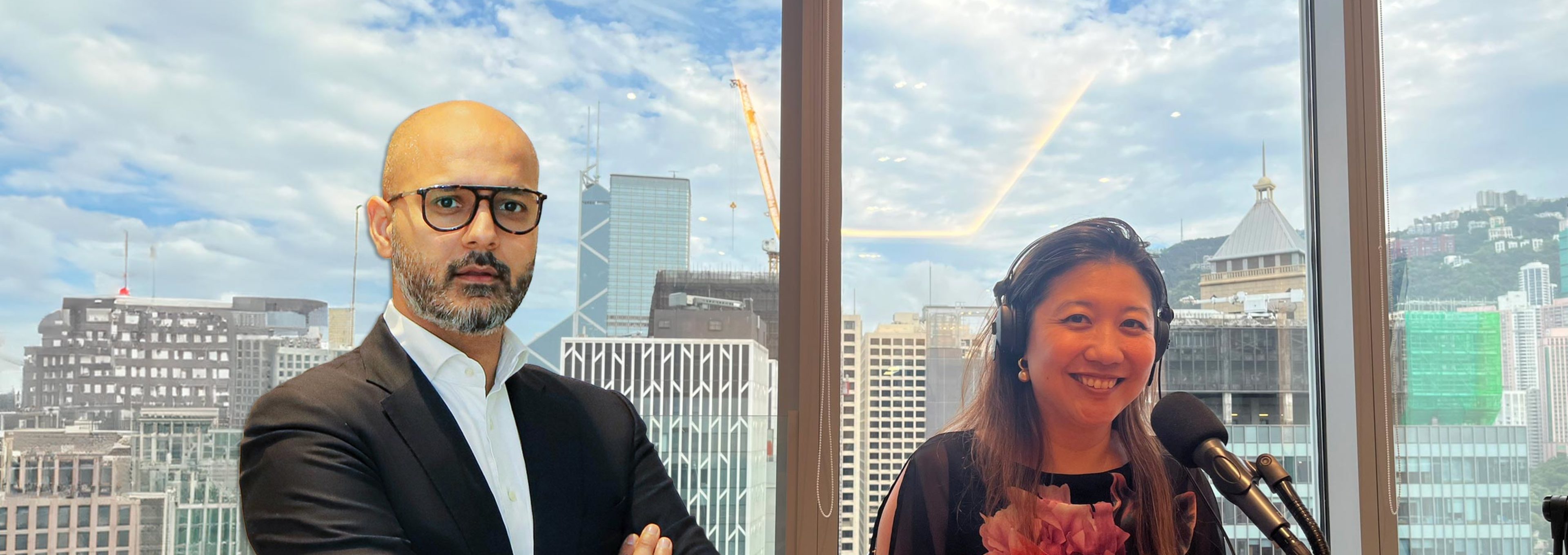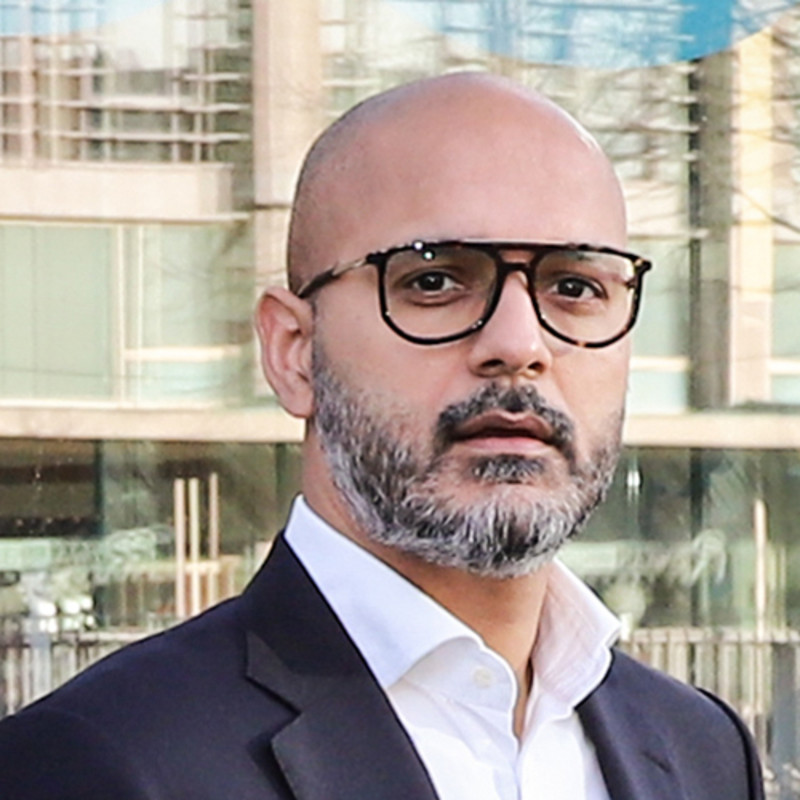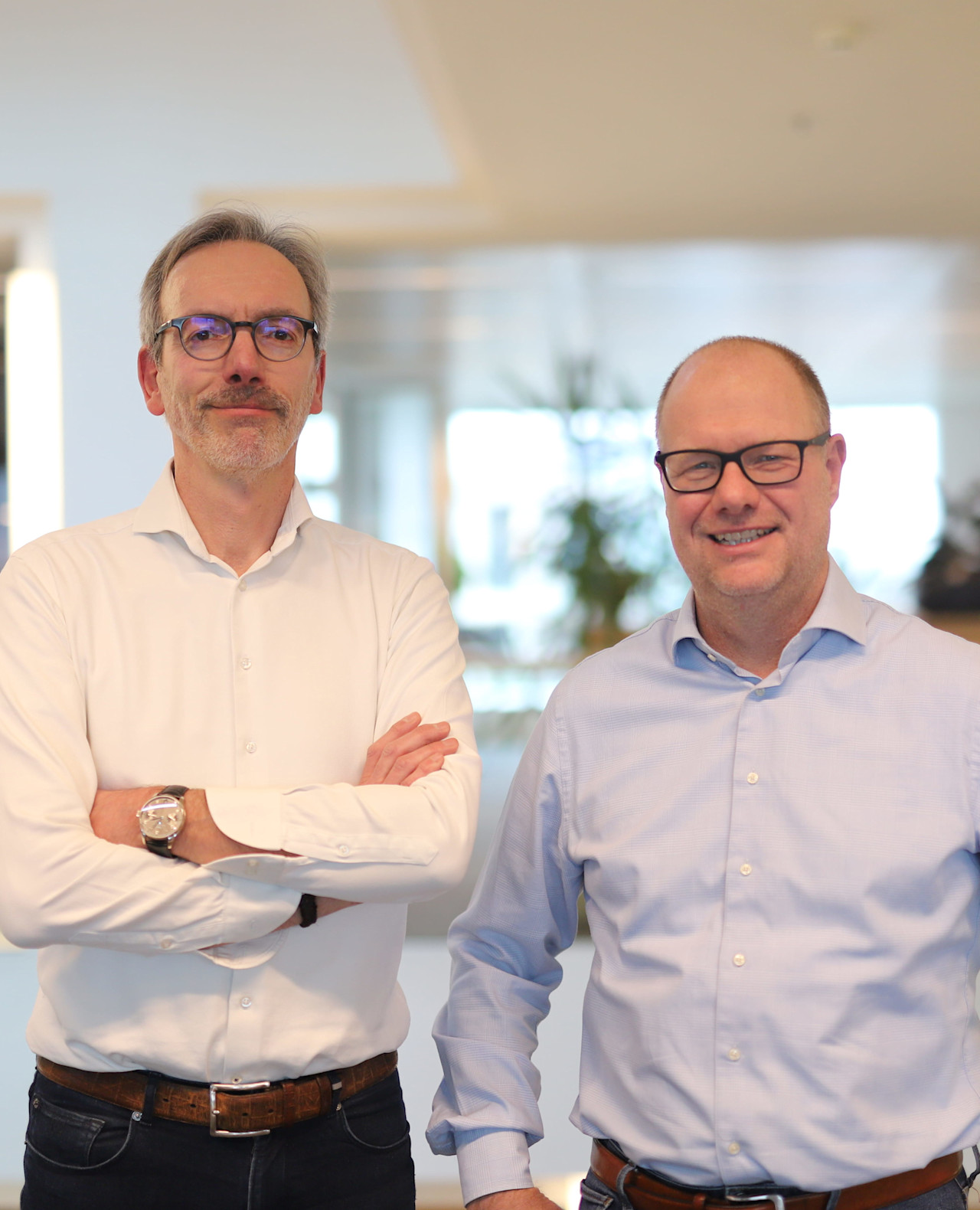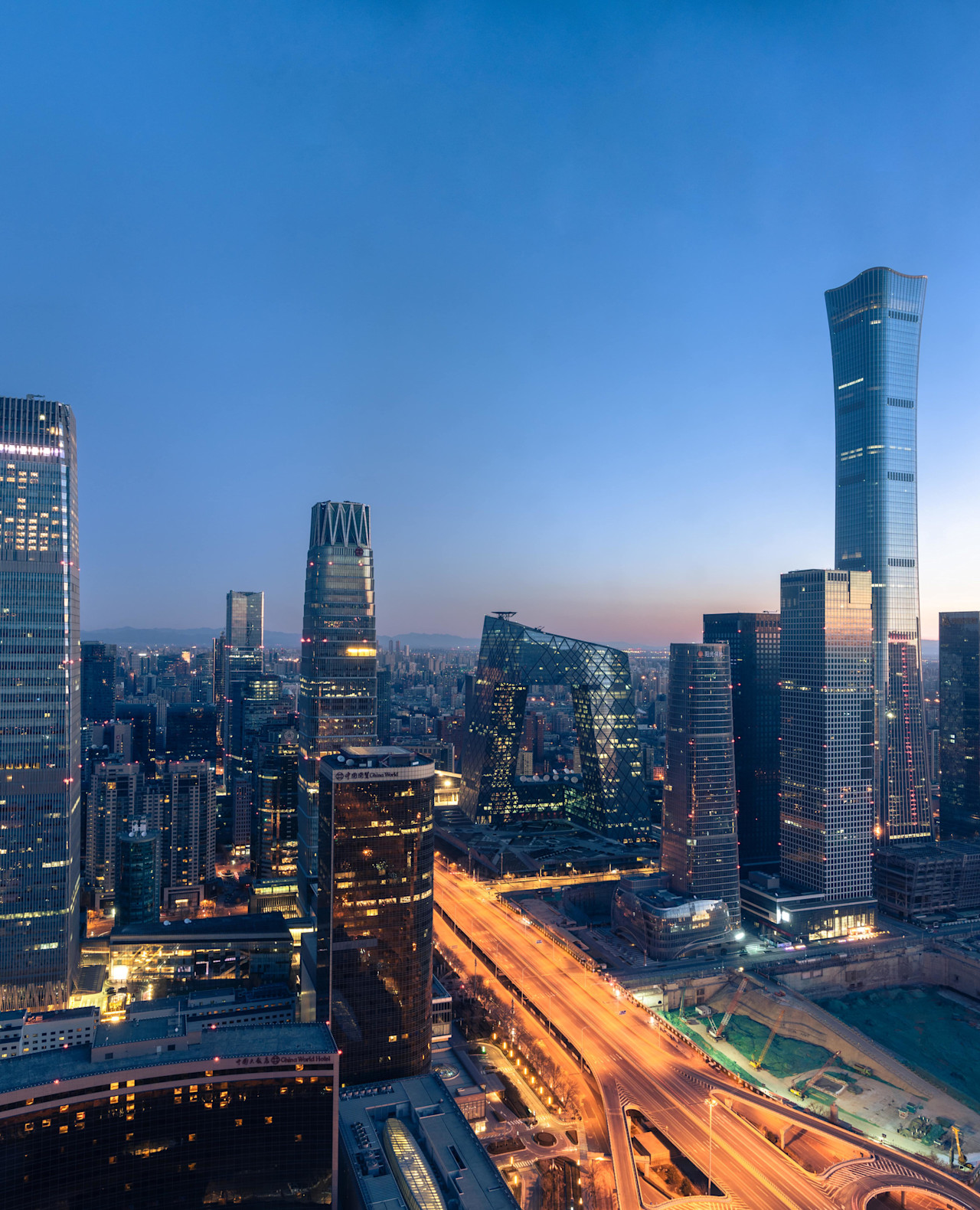

Podcast: Is the eternal promise of emerging markets starting to materialize?
Many investors are still underweight emerging market equities. While the asset class outperformed developed markets by a wide margin in the first decade after the millennium, emerging market equity returns have since lagged, leaving investors with a degree of skepticism.
But, looking ahead, one cannot deny the immense promise that many emerging markets now offer – tech innovation, new infrastructure, and demographic trends combined with greater macroeconomic stability. Tune in to hear the views of Vicki Chi and Karnail Sangha.
This podcast is for professional investors only.
Vicky Chi (VC): There's been also research done in the market talking about what if tariffs are really hiked to 60%, and what would that mean for the Chinese GDP growth and related employment and a general concern on how to utilize the capacity in the country.
VC: But besides that, I think there are also a lot of opportunities in emerging markets. So whatever that's going to be lost from China will be gained by other emerging markets. So one of the points that we feel very excited about in Asia is really the relocation of supply chains. So that's been happening for a while. And we see that continue to happen. And so if tariff increases for the Chinese, that would mean the benefits for the Vietnamese, for the Indonesian, for the Malaysian and very likely for the Mexicans.
Erika van der Merwe (EM): Many investors are still underweight emerging market equities. Now, while the asset class outperformed developed markets by a wide margin in the first decade after the millennium, emerging market equity returns have since lagged, leaving investors with a degree of skepticism. But looking ahead, one cannot deny the immense promise that many emerging markets now offer based on factors quite different from what drove returns in the past. Tech innovation, the building of new infrastructure and demographic trends are some of these factors, combined with greater macroeconomic stability and a marked power shift from west to east. My guests to discuss this in more detail are Vicky Chi and Karnail Sangha. Vicky is portfolio manager for Robeco Asian Stars and Karnail is portfolio manager for Robeco Emerging Stars. Welcome both of you. So good to have you.
VC/KS: Thank you. Glad to be here.
EM: And just for context, we're speaking to Vicky, Vicky is based in Hong Kong and Karnail is with me here in Rotterdam. So, Vicky, what are you hearing and seeing from investors and asset allocators on their appetite for emerging markets right now? What are you hearing?
VC: We are seeing increasing client interest to discuss emerging markets recently. And that includes many of them in Asia. We're seeing that allocators are thinking about their portfolios. Rate cuts typically are very good for emerging markets, so that means liquidity is coming back to our part of the world. And given the underperformance of emerging market equities over time versus US equities, everybody has this very big question in their head: are we at the verge of a major shift of paradigm in the global markets?
EM: Karnail, would you agree? Is that what you're hearing as well? You're constantly in touch with investors. You're about to go on a roadshow to Australia, for example. What are you hearing?
Karnail Sangha (KS): I would say that in the longer-term perspective, there was a little bit of an allergy towards the emerging markets, and that's reflected in the allocation of international investors, which is well below historical averages. But if you look at the near-term picture, then that's pretty encouraging because you are seeing that the GDP growth rates are pretty stable across EM. We are seeing an earnings recovery also this year as compared to last year, and valuations are at extremes. So of course valuation is not an exact or a perfect timing tool, but it puts things in perspective. And I think that with growth and earnings recovery, combined with the attractive valuation, especially compared to developed markets, that interest is returning. And we are also noticing this with our existing clients, which are increasing their allocations and getting more RfPs from prospects.
EM: So compared to, let's say, a year ago, it was a marked improvement over the past 12 months.
KS: Yes, so the momentum was already back then also where we saw the increased the client interaction. And that trend is continuing.
EM: Amongst the various things happening right now, Vicky, is also the US elections with a rather dramatic buildup to that process. So in the meantime, what are markets pricing in, and what do you feel would be the implications of different outcomes of that election for emerging markets?
VC: For many investors, the outcome of the US election is very vocal at this moment. Obviously we're very close to the election and we will continue to hear a lot of different directions and different sort of noises as we approach the election results. I think for emerging markets, the big question is, some of the comments that are being made regarding tariffs by Trump. So that is a potential concern for emerging markets. We know that China has been singled out as one of the countries that will receive a lot of these tariff issues. So there's been also research done in the market talking about what if tariffs are really hiked to 60% and what would that mean for the Chinese GDP growth and related employment, and a general concern on how to utilize the capacity in the country. But besides that, I think there are also a lot of opportunities in emerging markets. So whatever that's going to be lost from China will be gained by other emerging markets. So one of the points that we feel very excited about in Asia is really the relocation of supply chains. So that's been happening for a while, and we see that continue to happen. And so if tariff increases for the Chinese, that would mean the benefits for the Vietnamese, for the Indonesian, for the Malaysian and very likely for the Mexicans. So there would be beneficiaries within emerging markets as a whole. So it's also, on the other hand, very interesting to hear both candidates in the US mention a lot about what they can do to lower inflation in the United States. From our perspective, the imports would continue to happen from the US, coming from the emerging market countries. So from that perspective, I think if inflation is reduced, that would mean actually quite OK aggregate demand for emerging market products. So that is positive. And then one more thing that's on top of mind for investors is also the energy policy. So two candidates have very different ideas of how to think about the energy of the future. So that would have an impact on emerging countries as well. But if the oil price would stay positive, then that actually would be still quite good for renewable energy. So, we would need to see exactly which candidate wins and get more details on economic policies as the debates come through and we hear more about the candidates.
EM: And Karnail, of course, there's not only US trade policy and US regulation and its activities done in the tech space, but also US monetary policy that has significant consequences for emerging markets. So we're at this point, less than a month or so from here, we could see a US interest rate cut. What would that mean for emerging markets?
KS: Overall, lower interest rates for the US would imply a weaker dollar. And historically a weaker dollar has always been good for EM equity returns. If you would elaborate a little bit further on that point, lower interest rates would also be supportive for economic growth in general. So that would also be good for these emerging market countries which are more vulnerable to a lower interest rate than the developed world. Lower interest rates also are supportive for higher equity multiples. So this would also be a positive outcome. And if you look across emerging markets, there are a lot of indebted countries. There's a lot of leverage which is there, also denominated in the US dollar. So a weaker US dollar would also alleviate a lot of pressure for these companies and countries. So overall that would definitely be a positive outcome.
EM: Vicky, do you agree, and feel free to add, but I also want to ask you about Japanese policy. Japan's central bank, the Bank of Japan, has made some interesting steps to try and strengthen the currency. It's also moved out of the zero interest rate policy, shaking not only the Asia-Pacific region, but the globe.
VC: Absolutely. What we're seeing is actually the unwinding of carry trades by borrowing the Japanese yen and buying risky assets in other markets. And I think Asia came out of it pretty well in the sense that a lot of money, you can see, actually went into all sorts of very, very risky assets. And very few of them are in emerging markets. What we've seen is a little bit pullback of some technology stocks. But the much bigger impact was felt in bitcoin, in Nvidia, so we're actually surprisingly seeing a lot of defensiveness across Asia. Take India as an example, that’s a market that's done really, really well and didn't really correct through this unwinding of carry trades. So I think that also is a testament of how cheap we are in the region. I think we should be the risky asset that benefits from whatever comes next.
EM: You've touched on various themes right now that's positive about emerging markets. But let's sort of set out now: what is the particular opportunity set that you've identified in emerging markets, whether it's over the short term or the longer term?
KS: The emerging consumer is of course a very important one. That's an area where we have a big position and that we like. The consumer in emerging markets is still largely underpenetrated in terms of products, goods and financial services. And as GDP per capita increases over time, these consumers will spend and a lot of companies will benefit from this. So the consumer is definitely a very important pillar for us. We also like the IT companies within emerging markets. We have a big weight there as well. These companies are very important in the supply chain of all the other developed market companies, and they're very crucial as well. So it's not just that they make simple components or hardware components, but this is critical IT, high-level chips that are required for the AI theme that's unfolding globally. So emerging markets has become the home of world-class IT companies now. So that's an area that we also like. We like the theme that also Vicky touched upon: the friendshoring and nearshoring theme that's unfolding. Also, within the sustainability field, we like the EV battery makers. So that's another area where emerging market companies have done a great job in creating capacities and being profitable at the same time. Because if you look at EV battery companies across the globe, there are only a couple of them which are profitable. And in emerging markets, especially in Asia, there are already companies that are profitable within that field. So there are a couple of these themes that we like and that we also invest in.
EM: Vicky, I know that you and Karnail do have some overlapping meetings where you discuss specific stocks. But of course, you look specifically at the Asian region and this sort of tech innovation that Karnail referred to is really obvious in your area in Taiwan and Korea, for example. So tell us more about these opportunities.
VC: I think over the past five years, it has become very clear that without the power of Asian semiconductor supply chain, there is no AI, there is no Internet-of-Things, there is no EV or any of these progresses that we're really trying to make all together globally. Not only are we manufacturing powerhouses, we're becoming so important in the supply chain and that is also a major return driver for investors in Asia. But beyond that, I think manufacturing excellence is, like what Karnail just mentioned, is a very important investment theme for us, because if you look around the globe, manufacturing is becoming increasingly sophisticated in Asia. So different countries, depending on their level of development, are benefiting from increasing capabilities in manufacturing. So Asia is becoming such a center in that and supplying the rest of the world with manufactured goods from the cheapest to the more advanced capital goods. This is going to be a very important theme for us in Asia.
EM: The way both of you describe this, this sounds like a longer-term structural trend that's evolving. But what about the more immediate term, the next six months, the next one year? Is it a short-term opportunity as well? Are you seeing those corporate earnings coming through?
KS: If you look at the earnings season so far, earnings have met expectations or even beaten on average. When we construct portfolios, we don't typically take a very short-term horizon. So in our investment process we really look at a longer term. So hence we also make financial models which are based on a 3- to 5-year horizon. So benefiting from the short term, which is caused by a lot of emotional, sentimental and new driven flow, that's something that we tend to avoid. But every now and then we do see opportunities, so that would be more from a tactical perspective. And that can be mostly on a country level, or whenever we see some external or some negative shock risk coming from external factors. But when constructing portfolios and buying stocks of companies, we typically tend to be a little bit more long term rather than short term.
EM: So Vicky, that's Karnail’s perspective on emerging markets. For you Asia-Pacific, an emerging region there. How do you approach things? How do you see it in the short term?
VC: I think the overall rate environment has been not conducive for growth for most of the emerging markets up to this year. So we've actually delivered, like Karnail said, pretty good earnings growth despite very high interest rates. I think standing at this point in time, what we really want to see is once interest rate becomes less of a prohibition in growth, what we're going to achieve in the region. And obviously, given the development stage, given a lot of positives from bottom up, from consumption, the natural growth drive is very strong in Asia. So once the interest rate starts moderating, then it would be very positive for even more earnings growth coming through in the region.
KS: Elaborating a little further on what would be a near-term opportunity: if I have to name an example that will be China. Because in China we've seen a long derating over a long period of time. Growth has been coming off and that's due to the factors that we are all well aware of, so demographics and geopolitical tensions, the worries within the property sector, etc. So that has almost brought China on its knees. But those worries are more reflected in the share prices, so expectations are really, really low. We think that from a tactical perspective, the slightest surprise on the upside could ignite a lot of interest back into China again. So that could be probably for the near term a tactical opportunity.
EM: And could I challenge you: could an opposite story to that be India, that seems to be such a darling of the market, performing really well, but we keep hearing that valuations are really pricey right now.
KS: India is an interesting and probably the best story out there, from a growth perspective. It has everything going for it, also from a top-down perspective, the leadership, the policy continuation after the elections, no negative shocks from the outside world. So the oil prices which bumped up but didn't hurt them because they were still sourcing it cheaply from Russia, helped them to a large extent. And now we are also starting to see some increased infrastructure investments. From our perspective on the ground, it is pointing into the right direction. The valuation story, we're not the first one to discover this, so there's a lot of expectations that are being priced in. And so far companies have been delivering on earnings. But whenever that momentum stops or whenever the companies are not able to surprise on the upside, then probably that could be a moment for valuations to come off a little bit. But so far, the momentum seems to be on the stronger side.
EM: So Vicky, you two have spoken about China, India. We've mentioned Korea and Taiwan. Where else are you looking and finding great opportunities right now?
VC: I think Asean is also very underlooked typically and are relatively smaller markets, but I guess when you group them together, they're a bit bigger and definitely less expensive than India in terms of valuation, but just as much earnings growth. So I think also they would be beneficiaries when rate cuts come through. So that would be another very interesting area also benefiting from the supply chain shifting out of China, and resources also in the region. I think Asean is an exciting area.
EM: Karnail, beyond that, Latin America, Africa, Central Europe, where else?
KS: Definitely. Greece is an area that we like. Good economic growth, nice recovery after the crisis that it has experienced. We like Brazil. Mexico is another country that we like also for the near-shoring theme.
EM: You haven't mentioned Africa.
KS: South Africa does have structural issues. So if you look from a growth perspective and growth outlook perspective, investments have been lacking. From a domestic angle, it's not the most exciting country out there to invest.
EM: What worries you most about what you do every day? What are the risks that you see, what could go wrong here?
KS: Specific to emerging markets, I would say political risks. So those are the things that are beyond your control, or events that can suddenly come up, in a way that you didn't expect. So political concerns are definitely a big risk when looking at emerging markets. Geopolitical risks, of course the China/US or China/Taiwan angle can be mentioned there, but also political risk from when power is too much concentrated. So China is again a good example, that's not something that you want, you want to have more balanced power distribution, especially when it comes from a top-down perspective. So I would say political risk is definitely something.
EM: Vicky, if you could elaborate on that, but interwoven in those risks of course is the forex risk, the currency crashes as a result of these concerns.
VC: Our currencies are very sensitive, yes. But I guess with rate cuts coming through that might be less of a risk on the top of my mind. But there is a risk that is on the top of my mind, and that's the risk in the AI frenzy. So I think we're very well exposed to that. And I guess the advantage of being a regional investor in Asia is that I have very good alternatives where there is very strong fundamental growth, that are less correlated with global markets. So, for example, those in India and Malaysia, and toward that extent in China, because it's so cheap that it no longer correlates with the global with the global markets. But I recognize AI is super important, it's super exciting and there seems to be endless demand and it can only go better from here. But a lot of that is in the price. So, being contrarian investors that concerns me.
EM: It's such a good point.
KS: Forex is of course, very important – FX. Eventually we have to translate our gains that we have harvested locally back into euros or dollars. So whenever we are looking at countries where we want to invest in, currency is taken into account into our macroeconomic analysis. We have a top-down framework whereby we do country analysis. And then currency is a big part of that as well, whereby we look at the main drivers that can influence the outcome of the currency of those countries.
EM: So for both of you, to what extent do you hedge currency risk, or are you simply using diversification and country allocation as a natural hedge?
KS: We'll be doing the latter. If you look at the cost for hedging emerging market currency, that's pretty expensive. So we take it implicitly into our country analysis. We look at the outlook for these currencies. We will be looking at a lot of macroeconomic variables and trying to judge where the currency will be moving towards to. And that's then implicitly taken into account when we are analyzing these countries, and we are ranking these countries from an attractiveness point.
EM: Vicky, is it the same approach for you?
VC: We're naturally long the local currencies in emerging markets by owning the equities. So I think every now and then we have used tools to try to hedge the currency risk, but only indeed in the bigger emerging markets where there is liquidity enough to get these kind of tools and where the cost is reasonable. For example, the Korean one, you could try to hedge that. But that only happens if we take a very extreme view and most likely if we don't like the currency of a country, probably the first action is to reduce equity exposure. That probably makes much more sense.
EM: Which takes me to my next point. I'd like you to sort of take a step back and just more from a philosophical process perspective, tell me, how does an investor get this right?
VC: We are very focused on being able to find the best stocks within the countries that we cover. So we've been doing that for many years. And the track record shows that we have been able to find those companies that really deliver on shareholder value. The holistic way of thinking is that we want to find management that operates in the interests of shareholders and continues to give us that excess return back. So in emerging markets is a small pool of companies, so selection is extremely important. And by owning these companies, investors enjoy both the growth coming from emerging markets, but also actually have returns that come into their pockets. So that is a philosophical way of thinking about investing in Asia, because over time, finding the right companies means that we can actually really get a lot of returns in these markets.
KS: I think with philosophy comes team and process, and I think within the process you need to have a couple of performance drivers. And we have identified a couple: country selection is an important driver, especially within emerging markets, stock selection, which is also integrating sustainability. We also make use of quant models. So quant models are helping us to overcome our own behavioral biases. I always mention it as an analyst without emotion. I think that the combination of those can direct us in a consistent way, in a repeatable way, in order to find those stocks whereby we think where the earnings potential is not priced in. We have a value bias, which means that for every opportunity that we analyze and every company that we analyze, we do discounted cash flow framework analysis, and we try to find those attractively valued companies with the near-term catalyst that is showing that growth potential is also coming through. So this is the process that that we apply, and of course, we have the team in place. I cannot know everything myself, so I have to depend on my analyst and my team. And the more seasoned and the more experienced your team is, the better-informed decisions you're able to make.
EM: Talking about seasoned and experienced: Robeco this year celebrates 30 years of emerging market investing. Quite an accomplishment. Both of you have been at Robeco for quite a long time yourselves, with a long career here. Looking ahead to the next 30 years, tell me about that. Vicky, starting with you: how are you positioned in your mind and with your strategies, for the next 30 years?
VC: I think emerging markets remains to be a very exciting area. And I think if I look at the economic fundamentals, this is really the place to be invested for the next 30 years. And again, echoing what Karnail said about our team and the power within the team, having a very strong team with senior investors that have seen cycles, that have learned our lessons over the years on how to select the best companies within emerging markets, I think we have a system that's very well set up to invest in the next 30 years. And one thing also I would like especially to mention is our colleagues in the Active Ownership team. I think the power of Robeco of being long-term investors is that we can really push for changes and improvements for companies operating in emerging markets, both from the corporate governance of the financial perspective, but also very importantly for the sustainability perspective, which is also very important for all of our portfolios and our processes. So clients also find that very important. I think pushing the companies to be better corporate citizens and take their share in delivering sustainable returns, is also something that's very well set up at Robeco for the next 30 years.
EM: And Karnail, final words from you on this, on looking into the future and how to make the most of the opportunity in the region.
KS: I think it's going to be a very dynamic space. Change is going to be a constant worth. So you have to be vigilant. You have to be on top of things. You have to realize that these countries which will have a lot of growth, also have demographic profiles which are much younger than what we are used to here in the Western world. And the way they are going to do things will be vastly different than what we have been doing. So we from typewriters, went to big box PCs and then laptops and then mobile phones and then smartphones. These people are going straight into smartphones, so their productivity leap is going to be much higher. So that will have implications for things like education or health care or even digital banking. So they are in a much faster track and we have to keep up with them. And hence we have to be vigilant and be on top of things. There are many, many exciting things that will be coming out of these markets.
EM: Karnail and Vicky, thank you so much for sharing your wisdom, your experience and your reflections with us. Good to speak to both of you.
KS/VC: Thank you.
EM: To listeners, thanks for being here with us. We publish a new episode every month covering a range of investment-related topics. This monthly podcast and Robeco’s markets podcast, In tune with the markets, are available on all major podcast platforms and on the Robeco website. If you subscribe, you’ll receive a notification as soon as the new episode is published. In the meantime, please rate the show and share the show link with a friend. Until next time.
Thanks for joining this Robeco podcast. Please tune in next time as well. Important information. This publication is intended for professional investors. The podcast was brought to you by Robeco and in the US by Robeco Institutional Asset Management US Inc, a Delaware corporation as well as an investment advisor registered with the US Securities and Exchange Commission. Robeco Institutional Asset Management US is a wholly owned subsidiary of ORIX Corporation Europe N.V., a Dutch investment management firm located in Rotterdam, the Netherlands. Robeco Institutional Asset Management B.V. has a license as manager of UCITS and AIFS for the Netherlands Authority for the Financial Markets in Amsterdam.
























